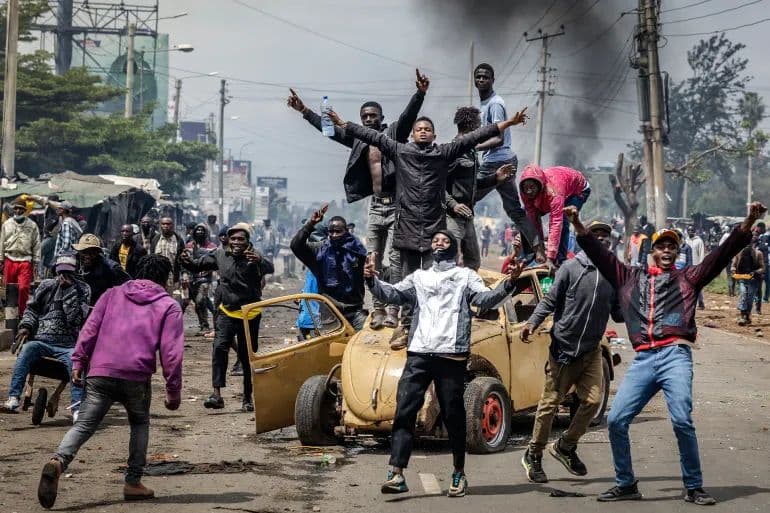We're loading the full news article for you. This includes the article content, images, author information, and related articles.
The 35th anniversary of the Saba Saba pro-democracy demonstrations has been marred by tragedy, with at least 31 people killed and over 500 arrested in a brutal crackdown on nationwide anti-government protests.

Nairobi, Kenya – What was meant to be a solemn commemoration of Kenya’s pro-democracy legacy has instead become a national tragedy. The 35th anniversary of the Saba Saba demonstrations has been overshadowed by a brutal government crackdown on widespread anti-government protests that have left at least 31 people dead and more than 500 arrestedacross the country.
What began as a youth-led movement demanding economic dignity, justice, and democratic reform quickly escalated into violent confrontations. Protesters, driven by mounting frustrations over economic stagnation, runaway corruption, and unchecked police brutality, poured into the streets from Kisumu to Nairobi to Eldoret — only to be met with tear gas, water cannons, and, in some cases, live bullets.
“We are not looters. We are citizens asking for dignity,” one protester in Nakuru told Streamline Feed.
Security forces have come under intense scrutiny for their conduct. The Kenya National Commission on Human Rights (KNCHR) has denounced the police response as “grossly disproportionate,” accusing officers of deploying excessive and, at times, lethal force.
One of the most devastating incidents occurred in Kiambu, where a 12-year-old girl was struck and killed by a stray bullet while playing outside her home. Her death has ignited a nationwide outcry and become a haunting emblem of the rising human toll.
President William Ruto, already facing a groundswell of public discontent, further inflamed tensions with remarks suggesting security forces were justified in using force to “contain looting.” Critics argue that such rhetoric betrays the spirit of constitutionalism and accountability that Saba Saba once stood for.
International human rights organizations and diplomatic partners are now calling for an independent investigation into the deaths and arrests, while civil society leaders are demanding an urgent national dialogue to address the root causes of public disaffection.
As Kenya teeters on the brink of deeper unrest, many are questioning whether the government has lost touch with the generational aspirations of its youth. What began in 1990 as a march for multiparty democracy is now being revived — but this time, the struggle is about economic justice, governance accountability, and a future worth staying for.
The moment calls not just for restraint, but for reflection. Saba Saba was always about the voice of the people. Thirty-five years later, that voice is louder than ever — and more desperate to be heard.
Keep the conversation in one place—threads here stay linked to the story and in the forums.
Sign in to start a discussion
Start a conversation about this story and keep it linked here.
Other hot threads
E-sports and Gaming Community in Kenya
Active 9 months ago
The Role of Technology in Modern Agriculture (AgriTech)
Active 9 months ago
Popular Recreational Activities Across Counties
Active 9 months ago
Investing in Youth Sports Development Programs
Active 9 months ago